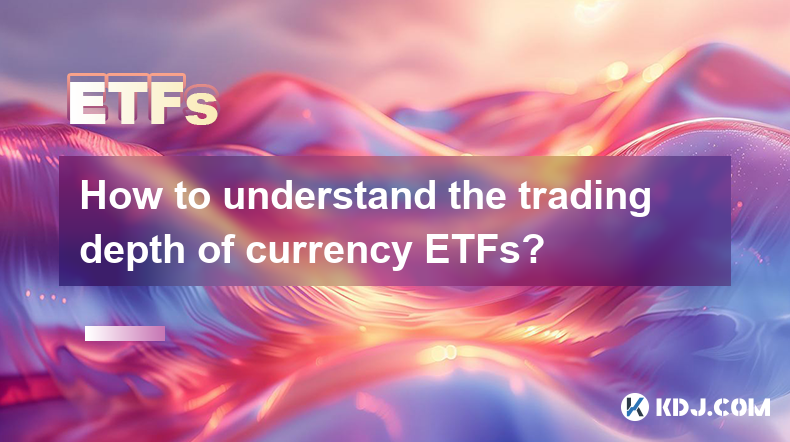-
 Bitcoin
Bitcoin $84,422.3862
-1.22% -
 Ethereum
Ethereum $1,579.4438
-1.72% -
 Tether USDt
Tether USDt $1.0000
0.00% -
 XRP
XRP $2.0539
-1.78% -
 BNB
BNB $589.6626
0.05% -
 Solana
Solana $137.3150
-1.67% -
 USDC
USDC $1.0000
0.00% -
 TRON
TRON $0.2451
0.93% -
 Dogecoin
Dogecoin $0.1543
-2.74% -
 Cardano
Cardano $0.6154
-1.90% -
 UNUS SED LEO
UNUS SED LEO $9.3292
0.64% -
 Chainlink
Chainlink $13.0166
1.86% -
 Avalanche
Avalanche $19.3938
-1.37% -
 Toncoin
Toncoin $2.9697
-0.37% -
 Stellar
Stellar $0.2415
-1.86% -
 Shiba Inu
Shiba Inu $0.0...01228
0.68% -
 Hedera
Hedera $0.1621
-2.21% -
 Sui
Sui $2.1055
-2.01% -
 Bitcoin Cash
Bitcoin Cash $334.5402
-0.94% -
 Polkadot
Polkadot $3.8448
3.11% -
 Hyperliquid
Hyperliquid $17.5557
-3.01% -
 Litecoin
Litecoin $76.0382
-0.15% -
 Dai
Dai $1.0000
0.00% -
 Bitget Token
Bitget Token $4.3529
-4.59% -
 Ethena USDe
Ethena USDe $0.9993
0.01% -
 Pi
Pi $0.6275
-3.58% -
 Monero
Monero $216.3249
1.59% -
 Uniswap
Uniswap $5.1978
-0.97% -
 Pepe
Pepe $0.0...07414
2.25% -
 Aptos
Aptos $5.0082
4.19%
How to understand the trading depth of currency ETFs?
Traders can gauge the supply and demand for a currency ETF at different price levels by analyzing the order book, which displays all pending buy and sell orders for that ETF.
Jan 06, 2025 at 02:55 pm

Key Points
- Steps to understanding trading depth
- Strategies for using trading depth to improve trades
- Impact of trading depth on market liquidity
- Role of order books in determining trading depth
- Factors influencing the trading depth of currency ETFs
Understanding Trading Depth of Currency ETFs
1. Analyze the Order Book
- The order book is a display of all pending buy and sell orders for a currency ETF.
- Each order contains details such as the price, quantity, and type of order.
- By studying the orders, you can gauge the supply and demand for the ETF at different price levels.
2. Depth of Market Data
- Depth of market (DOM) is the portion of the order book that is visible to traders.
- Higher DOM indicates greater transparency and a more liquid market.
- Consider the DOM when evaluating trading volume and the ability to execute orders quickly.
3. Level II Order Book
- Level II order books provide a more granular view of the order book, showing multiple price levels with corresponding quantities.
- This allows traders to identify significant support and resistance levels, as well as large buy or sell walls.
4. Market Spread
- Market spread refers to the difference between the bid (sell) price and the ask (buy) price.
- Narrow spreads indicate high market liquidity and low transaction costs.
- Wider spreads can result in lower returns or opportunity costs.
5. Liquidity Thresholds
- Currency ETFs have different liquidity thresholds that determine the minimum quantity of shares that can be traded without affecting the market price.
- Lower liquidity thresholds allow for smaller trades with minimal slippage.
6. Order Flow and Execution Time
- Observe the flow of orders within the order book to anticipate market movements.
- High order volume and low execution time suggest a liquid market.
- Consider the impact of order size on potential slippage, especially in low-liquidity ETFs.
7. Market Depth and Trading Strategies
Traders can use trading depth to implement various strategies, such as:
- Identifying support and resistance levels to find trading opportunities.
- Detecting large buy or sell orders to anticipate market sentiment.
- Evaluating liquidity and slippage risk before entering trades.
8. Impact of Market Conditions
- Bearish market conditions typically lead to lower trading depth and less liquidity.
- Bullish markets often increase trading depth and market liquidity.
- Monitor market news and sentiment to assess the impact on ETF liquidity.
FAQs
Q: What factors can influence the trading depth of currency ETFs?
- Market conditions: Bullish markets tend to increase trading depth, while bearish markets tend to decrease it.
- Fund size: Larger ETFs typically have higher trading depth.
- Underlying assets: ETFs tracking major currency pairs like EUR/USD usually have higher depth than those tracking exotic pairs.
- Regulations: Regulatory policies may also impact liquidity and trading depth.
Q: How can I use trading depth to improve my trades?
- Identify entry and exit points: Use order books and DOM to identify support and resistance levels for placing trades.
- Manage risk: Monitor market depth to assess potential slippage and manage the risk-reward ratio.
- Optimize execution: Consider order flow and DOM to execute trades at favorable prices.
Q: What are the limitations of trading depth analysis?
- Historical data: Trading depth is a dynamic measure that can fluctuate rapidly. Historical data may not accurately reflect current market conditions.
- Order cancellations: Orders in the order book can be canceled without execution, potentially distorting the observed depth.
- Order sequencing: Order execution is sequenced, which can lead to different execution prices for orders placed at the same price but at different times.
Disclaimer:info@kdj.com
The information provided is not trading advice. kdj.com does not assume any responsibility for any investments made based on the information provided in this article. Cryptocurrencies are highly volatile and it is highly recommended that you invest with caution after thorough research!
If you believe that the content used on this website infringes your copyright, please contact us immediately (info@kdj.com) and we will delete it promptly.
- The best sources for Coin Master free spins are the daily links that Moon Active posts on the title's official social media handles.
- 2025-04-20 22:05:13
- It Has Been an Exciting Week for BLACKPINK Fans in the UK! From April 17 to 23
- 2025-04-20 22:05:13
- Actor Park Bo Gum Surprises Many with His Smart Investment Skills
- 2025-04-20 22:00:13
- Recent Fan-Funded Ad Featuring Kim Soo-hyun at Seoul's Hongdae Station Has Sparked Backlash
- 2025-04-20 22:00:13
- Cosmos (ATOM) Begins to Show Signs of a Bullish Reversal
- 2025-04-20 21:55:13
- Vietnam Partners with Bybit to Test a Regulated Cryptocurrency Trading Platform
- 2025-04-20 21:55:13
Related knowledge

What role does SEC play in Bitcoin ETF approval?
Feb 25,2025 at 06:48am
Key Points:SEC's Role in Bitcoin ETF Approval ProcessHistorical Efforts to Establish a Bitcoin ETFSEC's Criteria for Bitcoin ETF ApprovalPotential Impact of a Bitcoin ETF on the Cryptocurrency MarketTimeline and Outlook for Bitcoin ETF ApprovalArticle:SEC Play in Bitcoin ETF ApprovalThe United States Securities and Exchange Commission (SEC) plays a crit...

Who is eligible to issue Bitcoin ETFs?
Feb 25,2025 at 11:13am
Key Points:Only regulated financial institutions with the necessary expertise and infrastructure are eligible to issue Bitcoin ETFs.The Securities and Exchange Commission (SEC) has not yet approved any spot Bitcoin ETFs, but has approved several futures-based ETFs.Applicants must meet stringent requirements, including having a strong track record and su...

What impact does Bitcoin ETF have on the market?
Feb 25,2025 at 11:37am
Key Points:Introduction to Bitcoin ETFs and their role in the cryptocurrency marketHistorical development and performance of Bitcoin ETFsPotential benefits of Bitcoin ETFs for investors and the marketRisks and limitations associated with Bitcoin ETFsRegulatory considerations and their impact on Bitcoin ETFsArticle:Introduction to Bitcoin ETFsBitcoin exc...

Which investors are Bitcoin ETFs suitable for?
Feb 27,2025 at 04:01pm
Key Points:Understanding Bitcoin ETFsBenefits of Bitcoin ETFsSuitability of Bitcoin ETFs for Different InvestorsAssessing Risk Tolerance and Investment GoalsConsidering Short-Term and Long-Term StrategiesExamining Tax ImplicationsSeeking Professional AdviceUnderstanding Bitcoin ETFsBitcoin exchange-traded funds (ETFs) are investment vehicles that track ...

What is the administrative expenses of Bitcoin ETFs?
Feb 26,2025 at 12:24am
Key Points:Administrative expenses are a crucial factor to consider when evaluating Bitcoin ETFs.These expenses can significantly impact the performance of the fund and ultimately the investor's returns.Understanding the various components of administrative expenses is essential for informed decision-making.Comparing administrative expenses across diffe...

What are the fees for purchasing Bitcoin ETFs?
Feb 27,2025 at 07:13pm
Key Points:Bitcoin exchange-traded funds (ETFs) are a cost-effective and regulated way to gain exposure to Bitcoin.Fees associated with Bitcoin ETF purchases vary depending on the platform, trading volume, and account type.It is essential to evaluate fee structures carefully to optimize investment returns.Fees Associated with Purchasing Bitcoin ETFs1. B...

What role does SEC play in Bitcoin ETF approval?
Feb 25,2025 at 06:48am
Key Points:SEC's Role in Bitcoin ETF Approval ProcessHistorical Efforts to Establish a Bitcoin ETFSEC's Criteria for Bitcoin ETF ApprovalPotential Impact of a Bitcoin ETF on the Cryptocurrency MarketTimeline and Outlook for Bitcoin ETF ApprovalArticle:SEC Play in Bitcoin ETF ApprovalThe United States Securities and Exchange Commission (SEC) plays a crit...

Who is eligible to issue Bitcoin ETFs?
Feb 25,2025 at 11:13am
Key Points:Only regulated financial institutions with the necessary expertise and infrastructure are eligible to issue Bitcoin ETFs.The Securities and Exchange Commission (SEC) has not yet approved any spot Bitcoin ETFs, but has approved several futures-based ETFs.Applicants must meet stringent requirements, including having a strong track record and su...

What impact does Bitcoin ETF have on the market?
Feb 25,2025 at 11:37am
Key Points:Introduction to Bitcoin ETFs and their role in the cryptocurrency marketHistorical development and performance of Bitcoin ETFsPotential benefits of Bitcoin ETFs for investors and the marketRisks and limitations associated with Bitcoin ETFsRegulatory considerations and their impact on Bitcoin ETFsArticle:Introduction to Bitcoin ETFsBitcoin exc...

Which investors are Bitcoin ETFs suitable for?
Feb 27,2025 at 04:01pm
Key Points:Understanding Bitcoin ETFsBenefits of Bitcoin ETFsSuitability of Bitcoin ETFs for Different InvestorsAssessing Risk Tolerance and Investment GoalsConsidering Short-Term and Long-Term StrategiesExamining Tax ImplicationsSeeking Professional AdviceUnderstanding Bitcoin ETFsBitcoin exchange-traded funds (ETFs) are investment vehicles that track ...

What is the administrative expenses of Bitcoin ETFs?
Feb 26,2025 at 12:24am
Key Points:Administrative expenses are a crucial factor to consider when evaluating Bitcoin ETFs.These expenses can significantly impact the performance of the fund and ultimately the investor's returns.Understanding the various components of administrative expenses is essential for informed decision-making.Comparing administrative expenses across diffe...

What are the fees for purchasing Bitcoin ETFs?
Feb 27,2025 at 07:13pm
Key Points:Bitcoin exchange-traded funds (ETFs) are a cost-effective and regulated way to gain exposure to Bitcoin.Fees associated with Bitcoin ETF purchases vary depending on the platform, trading volume, and account type.It is essential to evaluate fee structures carefully to optimize investment returns.Fees Associated with Purchasing Bitcoin ETFs1. B...
See all articles























































































